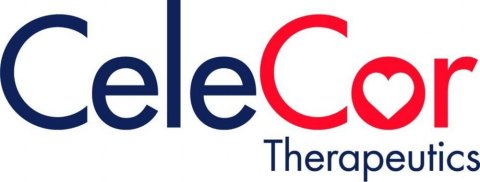CeleCor Announces Publication of Positive Clinical Results of RUC-4, a Novel Second Generation Platelet GPIIb/IIIa Inhibitor Designed for Subcutaneous Point-of-Care STEMI Therapy
CeleCor Announces Publication of Positive Clinical Results of RUC-4, a Novel Second Generation Platelet GPIIb/IIIa Inhibitor Designed for Subcutaneous Point-of-Care STEMI Therapy
RUC-4 is the first and only GPIIb/IIIa inhibitor that is in clinical development as a simple, single subcutaneous injection treatment to potently and rapidly block all platelet aggregation pathways to improve outcomes for heart attack patients
SAN DIEGO--(BUSINESS WIRE)--CeleCor Therapeutics, Inc. announced positive data from the company’s completed phase 1 clinical study of RUC-4 which was published in the Journal of the American Heart Association. The data show that subcutaneous administration of RUC-4 resulted in a potent, rapid, and sustained platelet inhibition effect that largely resolved after two hours. In the study, RUC‐4 appeared to be safe and well tolerated with no significant adverse events, bleeding events, or injection site reactions. Based on these data, CeleCor is planning to advance RUC-4 in a clinical study for the pre-hospital treatment of patients having a ST‐segment–elevation myocardial infarction (STEMI), a serious type of heart attack, which is caused by blockage in one of the heart's major arteries.
“Despite reductions in ‘door-to-balloon’ times for STEMI patients, mortality for these patients, especially prior to reaching the hospital, has remain unchanged over the past 40 years,” said Dean J. Kereiakes, M.D., FACC, FSCAI, Medical Director of The Christ Hospital Heart and Vascular Center and the Christ Hospital Research Institute, Professor of Clinical Medicine at The Ohio State University, and lead author of the publication. “The results we saw with RUC-4 are clinically relevant and have been shown to correlate with improved clinical outcomes following percutaneous coronary intervention (angioplasty with stent) in heart attack patients.”
The clinical data from 44 participants (14 healthy volunteers, 30 stable CAD patients with aspirin) showed that subcutaneous administration of RUC-4 at a dose of 0.075 mg/kg provided rapid (<15 minutes), consistent, high‐grade (>80%) platelet inhibition that resolved within two hours. In addition, aspirin did not significantly affect RUC-4 pharmacokinetics or pharmacodynamics. The safety data showed no drug-related ECG changes, no serious adverse events (SAEs), and no drug-related changes in laboratory values.
Robert S. Hillman, President and CEO of CeleCor, said, “Based on this promising data, a phase 2 clinical study has been initiated to validate these results in STEMI patients. In addition, we plan to begin a pivotal Phase 2 trial, called CELEBRATE, early next year.”
Inhibiting platelet aggregation can slow or stop blood clot formation leading to coronary artery blockage, and in turn, can stop or prevent a heart attack. By targeting platelet GPIIb/IIIa receptors, the final common pathway in platelet aggregation, RUC-4 inhibits platelet aggregation caused by all platelet activators and can, under some conditions, promote platelet disaggregation (clot dissolution). In contrast, other antiplatelet medications, including P2Y12 inhibitors and aspirin, inhibit only one platelet activator and do not disaggregate existing clots. Further, oral P2Y12 inhibitors do not act rapidly or reliably enough in STEMI patients during the crucial early minutes of a heart attack.
“As a GPIIb/IIIa inhibitor, RUC-4 blocks all platelet aggregation pathways to prevent the formation of blood clots and can provide dose-dependent disaggregation of existing platelet-rich thrombi,” said C. Michael Gibson, M.S., M.A. (Hon.), M.D., FRCP, FAHA, FSCAI, FACC, scientific advisor to CeleCor and co-author on the publication. “Because RUC-4 was specifically designed to be delivered as a single subcutaneous injection by auto-injector, it has the potential to be a significant breakthrough for improving outcomes for heart attack patients.”
For more information on the phase 2 clinical study, go to clinicaltrials.gov.
About RUC-4 and GPIIb/IIIa Inhibitors (GPIs)
The current FDA-approved GPIIb/IIIa inhibitors (abciximab, eptifibatide, and tirofiban) have demonstrated improved clinical outcomes when administered to STEMI patients prior to percutaneous coronary intervention, but they require an intravenous bolus dose, followed by an ongoing intravenous infusion controlled by a pump. This limits their ability to be administered in a pre-hospital setting. RUC-4 is differentiated from current GPIIb/IIIa drugs by its subcutaneous route of administration, and its capacity to lock the receptor in its inactive state. RUC-4 is specifically designed for easy early administration as a single subcutaneous injection by auto-injector so as to facilitate its use as the first point-of-contact treatment for STEMI.
About CeleCor Therapeutics
CeleCor Therapeutics, Inc. is a biotechnology company focused on developing a first-point-of-contact therapy to improve the treatment of serious heart attacks, specifically ST-Elevation Myocardial Infarction (STEMI). The company’s lead product candidate, currently in clinical trials, is RUC-4, a novel small molecule inhibitor of the platelet GPIIb/IIIa (αIIbβ3) receptor, designed to be easily administered subcutaneously by auto-injector at the first point-of-contact. CeleCor is headquartered in San Diego. For more information, visit www.celecor.com.
Contacts
Corporate Contact: Robert S. Hillman, Ph.D., CeleCor Therapeutics, contact@celecor.com, +1.858.777.9750
Media Contact: Jessica Yingling, Ph.D., Little Dog Communications Inc., jessica@litldog.com, +1.858.344.8091
